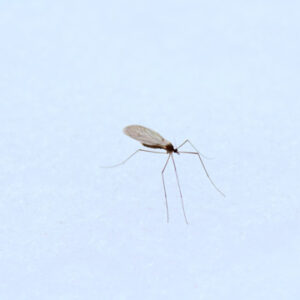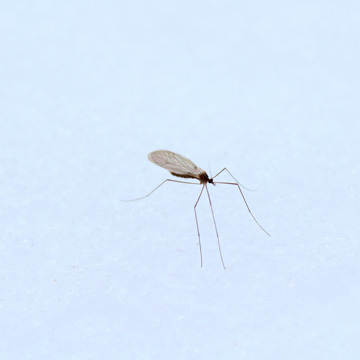 Serving Memphis, Cordova, Germantown & Collierville TN
Serving Memphis, Cordova, Germantown & Collierville TN
During winter, many people rejoice in one thing: cooler temps, with the hope of fewer pests. But it doesn’t imply that all pests disappear just because you don’t see them. In the winter, when resources like food and warmth are scarce, many pests go into a stage resembling hibernation, and some snuggle together. So, our Memphis area pest control experts at AAA Termite and Pest Control share what happens to pests during the winter months so that you understand how to protect your home.
Is pest control necessary during the winter?
Winter pest control is essential. When it gets cold outside, insects may retreat inside houses, where they can thrive with food and water access. Therefore, our Cordova pest control pros recommend sealing access points to prevent pests from entering. Then, treat your home’s interior for current resident pests to dramatically reduce your unwanted visitors.
Do pests go into hibernation?
Not all winter pest activity is identical, but understanding diapause is helpful. Many bugs adopt the diapause process to survive winter, and temperature variations trigger the event. Although it has distinct effects on each species, diapause is like hibernation because it reduces resources the creature requires for survival and temporarily halts its development. Our pest control technicians in Memphis share the most common pests and their winter season behavior.
-
Ticks
Ticks don’t disappear in the winter. Only approximately 20% of the tick population is wiped away by the cold weather. Also, the environment affects how a tick moves. Either it will latch onto a host, human, or animal, or it will look for a warm place to hibernate, like burrowing into the ground.
-
Bed Bugs
Bed bugs can endure temperatures that are slightly over-freezing and can only last for a few days in below-freezing conditions. If they’re inside, they could be active all year. That’s why your room is a desirable location for a bed bug colony. They don’t require much food and can go 400 days without it, so they can hibernate most of the winter without leaving their location.
-
Cockroaches
As the temperatures drop, you can notice large cockroach migrations indoors. Cockroaches move inside houses and commercial structures and can enter through tiny gaps, such as fractures, or through pipes and sewers. Additionally, cockroaches can drastically slow down and clump together for warmth when they’re trapped in chilly conditions. Then, diapause may begin, which reduces their metabolism, stops growth, and decreases reproduction.
-
Termites
Unfortunately, termites don’t hibernate or cease wood consumption during the winter. Our termite control experts in Memphis explain that once a termite infestation begins, the termites will destroy your home’s wood structure no matter the time of year.
-
Spiders
Many arachnids spend winter hibernating by going into diapause. Although it slows them down, spiders are still active and may emerge on warmer days in search of food. Even though spiders don’t usually move indoors for warmth like other insects, they might, if they lay their eggs nearby, follow another bug drawn inside by light, or a male travels outside his usual range in pursuit of a mate.
-
Mosquitos
There’s a widespread belief that mosquitoes pass away during the winter. Even though that’s sometimes the case, other times it’s because they are hibernating to stay warm. Although a mosquito’s reaction to cold weather varies substantially depending on the species, they generally favor warm climates.
-
Bees and Wasps
As temperatures drop and pollen supplies diminish, bees and wasps respond to cold weather in multiple ways. For example, some bee species huddle together while others enter diapause or create a cocoon. On the other hand, most of the wasp colony dies off except for mated female wasps.
-
Ants
Most ants will hibernate and spend the winter outside in their colonies. Ants overeat and gain weight in the fall and can go longer times without eating, thanks to their increased weight. The colony is sealed to stay warm when the temperature drops and the ants cluster together.
Pest Control in Cordova and Memphis, Tennessee
No matter how cold the temperatures get, you shouldn’t overlook winter pest protection. Take a proactive approach against pests to enjoy a cozy winter without unwanted guests. Contact our Memphis area pest control company to set up year-round pest control treatments for your Memphis home. Please call AAA Termite and Pest Control at (901) 737-7378 or contact us online to schedule an appointment.

